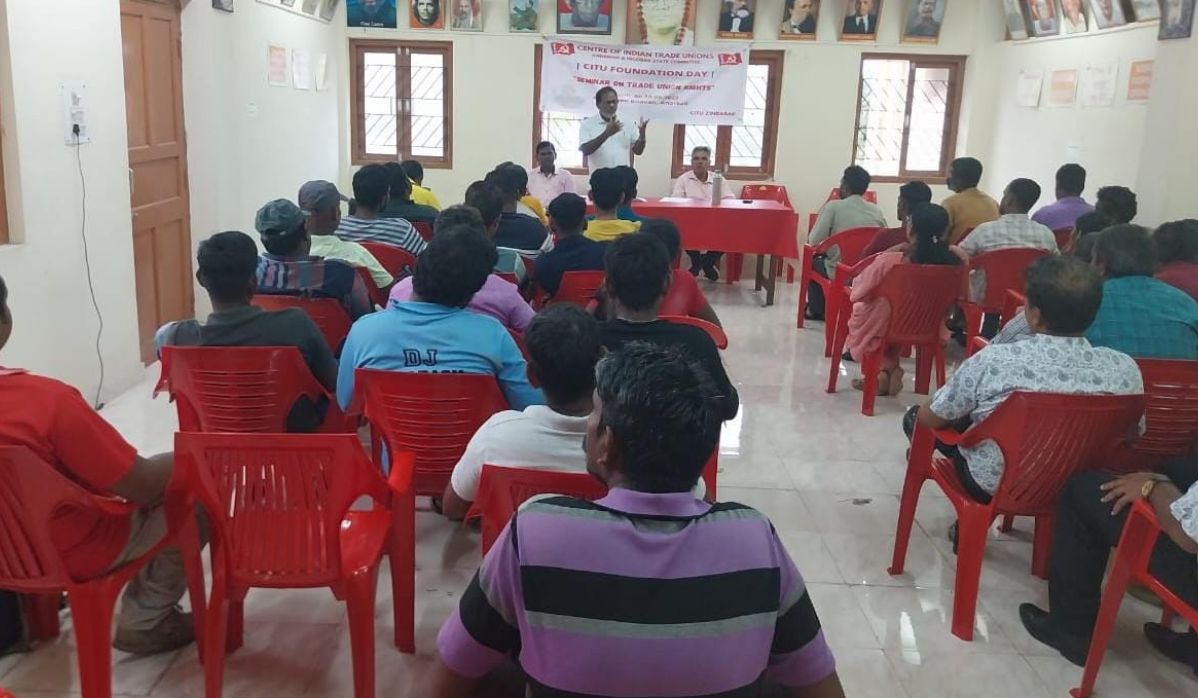Rohit Kumar
Sri Vijaya Puram, 30 May 2025
The Centre of Indian Trade Unions (CITU) Andaman & Nicobar State Committee marked its Foundation Day today by organizing a seminar on “Trade Union Rights” at Shaheed Bhavan, Anarkali. The event highlighted the historical journey and continued relevance of trade union activism in the country, particularly in the context of the alleged growing opposition to recent labour reforms.
Presiding over the seminar, D. Ayyappan, Vice President of the CITU State Committee, traced the evolution of the trade union movement in India since 1921 and the formation of CITU in May 1970. He emphasized CITU’s pivotal role in resisting anti-labour policies, particularly since the liberalization of the Indian economy in 1991. Ayyappan pointed out that, except for the Bharatiya Mazdoor Sangh (BMS), all central trade unions have united in protest against the new Labour Codes and other measures perceived as detrimental to worker rights.
“Lakhs of workers from various sectors including banking, insurance, and government services are actively participating in these nationwide struggles,” he said. Ayyappan also informed the gathering about CITU’s ongoing campaign across the Andaman & Nicobar Islands, which will culminate in an All India Strike on July 9, 2025.
Addressing the seminar, B. Chandrachoodan, General Secretary of the CITU State Committee, reflected on the organization’s decades-long struggle to secure workers’ rights in the islands. Citing a significant achievement, he said that over 9,000 daily rated workers in various departments of the A&N Administration benefitted from the grant of 1/30th of pay plus Dearness Allowance — a victory that came after nearly 30 years of agitation led by CITU since the early 1990s.
He stressed the importance of further strengthening CITU and its affiliated unions to sustain and advance the workers’ movement in the islands.
Anand Rajan, Secretary of the CITU State Committee, also addressed the seminar and reiterated the need for collective action to safeguard labour rights.

